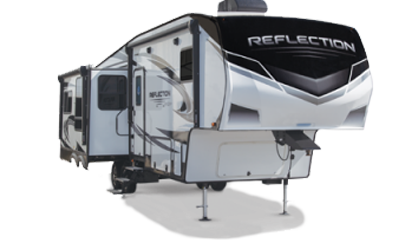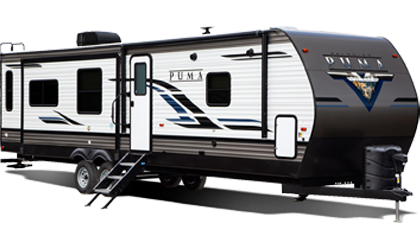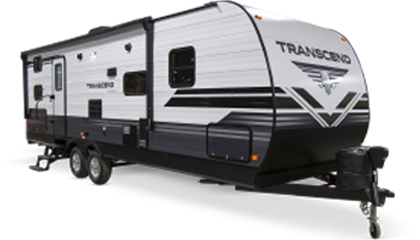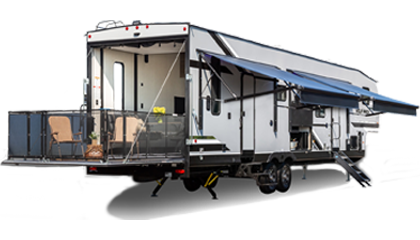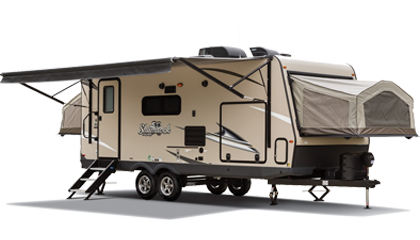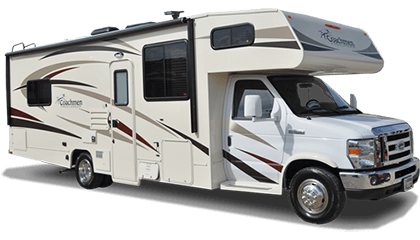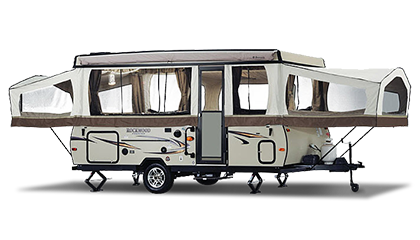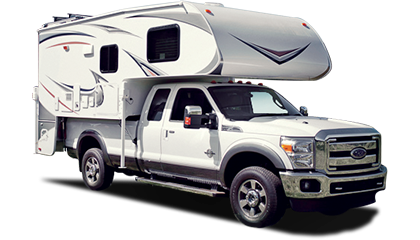What Every RVer Needs to Know About Campfire Safety
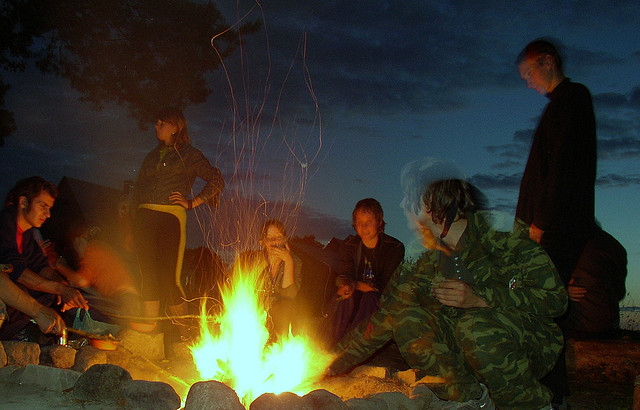
Everyone’s got their own idea of the Good Life when it comes to camping. For most people, it involves a few drinks around the campfire as the summer sun sets, with the kids safe asleep in the camper.
And there’s nothing potentially more dangerous than that campfire. With glowing embers and the occasional spark flying through the air, a poorly-planned campfire can cause immeasurable harm.
Here’s what RVers need to know about fire safety.
FOLLOW THE RULES
At your campground, make sure to use a designated campfire pit, don’t throw debris or trash in the fire and don’t use flammable liquids to start a fire.
But the best thing that every RVer can do to prevent dangerous fires: when in doubt, put it out. Letting a fire die out by itself overnight is not a safe thing to do, and loose embers and sparks can still fly when you’re not around, potentially harming your RV’s paint job – or worse.
When you’re ready to turn in for the evening, make sure the fire is completely out. Pour a few buckets of water over the fire to make sure it’s out, then stir the fire to make sure there are no burning embers left.
AWNINGS
Your RV awnings are one of the most susceptible parts of your RV to fires. They’re thin pieces of vinyl, and are not heat-resistant. Have you ever put your hand over a candle? That’s what your awning would experience with a campfire that was too close. It would end up being a melted, warped and discolored mess.
Worse yet, it could catch entirely on fire and cause even more damage to your RV.
Keep campfires as far away from your awning as possible. Sparks, embers and hot ash can fly through the air for more than 10 feet, and can easily singe or put holes in any vinyl or cotton fabric on your RV. Most RVs come with a fire extinguisher – make sure you have it ready in case the worst happens.
WINDS
Before starting a campfire, smart RVers know to check the weather. If there’s any inclimate weather coming, you might want to hold off on striking that match.
While rain is an obvious damper on campfire fun, winds can be particularly dangerous. A dry, hot wind is the ultimate firestarter, and an errant gust can blow embers out of your fire pit and onto surrounding brush, a picnic table and even your RV, which could cause thousands of dollars worth of damage.
If you’re camping in a state or national park, keep close eye on what Smokey the Bear has to say. During a drought or particularly hot season, winds can whip a campfire into a raging forest fire in no time, which can endanger local property, wildlife and lives.
With a little planning, smart RVers can have a great campfire and enjoy the Good Life with little issue. But make sure to keep safety in mind while you do it.
Photo courtesy jelles

